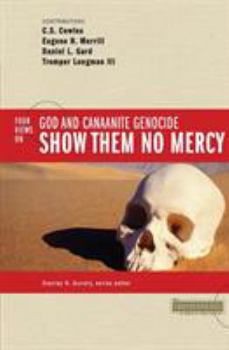Book Overview
Did God condone genocide in the Old Testament? How do Christians harmonize the warrior God of Israel with the God of love incarnate in Jesus?
Christians are often shocked to read that Yahweh, the God of the Israelites, commanded the total destruction--all men, women, and children--of the ethnic group known as the Canaanites.
This seems to contradict Jesus' command in the New Testament to love your enemies and do good to all people. How can Yahweh be the same God as the Father of our Lord Jesus Christ? What does genocide in the Bible have to do with the politics of the 21st century?
Show Them No Mercy explores the Old Testament command of God to exterminate the Canaanite population and what that implies about continuity between the Old and New Testaments. The four views presented are:
Strong Discontinuity - emphasizes the strong tension, regarding violence, between the two main texts of the Bible (C.S. Cowles)Moderate Discontinuity - provides a justification of God's actions in the Old Testament with strong emphasis on exegesis (Eugene H. Merrill)Eschatological Continuity - a reading of the warfare narratives that ties them contextually to the book of Revelation and the Second Coming (Daniel L. Gard)Spiritual Continuity - incorporates the genocidal account into the full picture of the Old and New Testaments (Tremper Longman III)The Counterpoints series presents a comparison and critique of scholarly views on topics important to Christians that are both fair-minded and respectful of the biblical text. Each volume is a one-stop reference that allows readers to evaluate the different positions on a specific issue and form their own, educated opinion.






